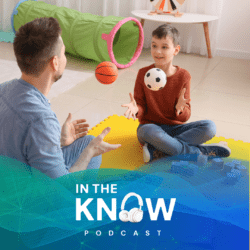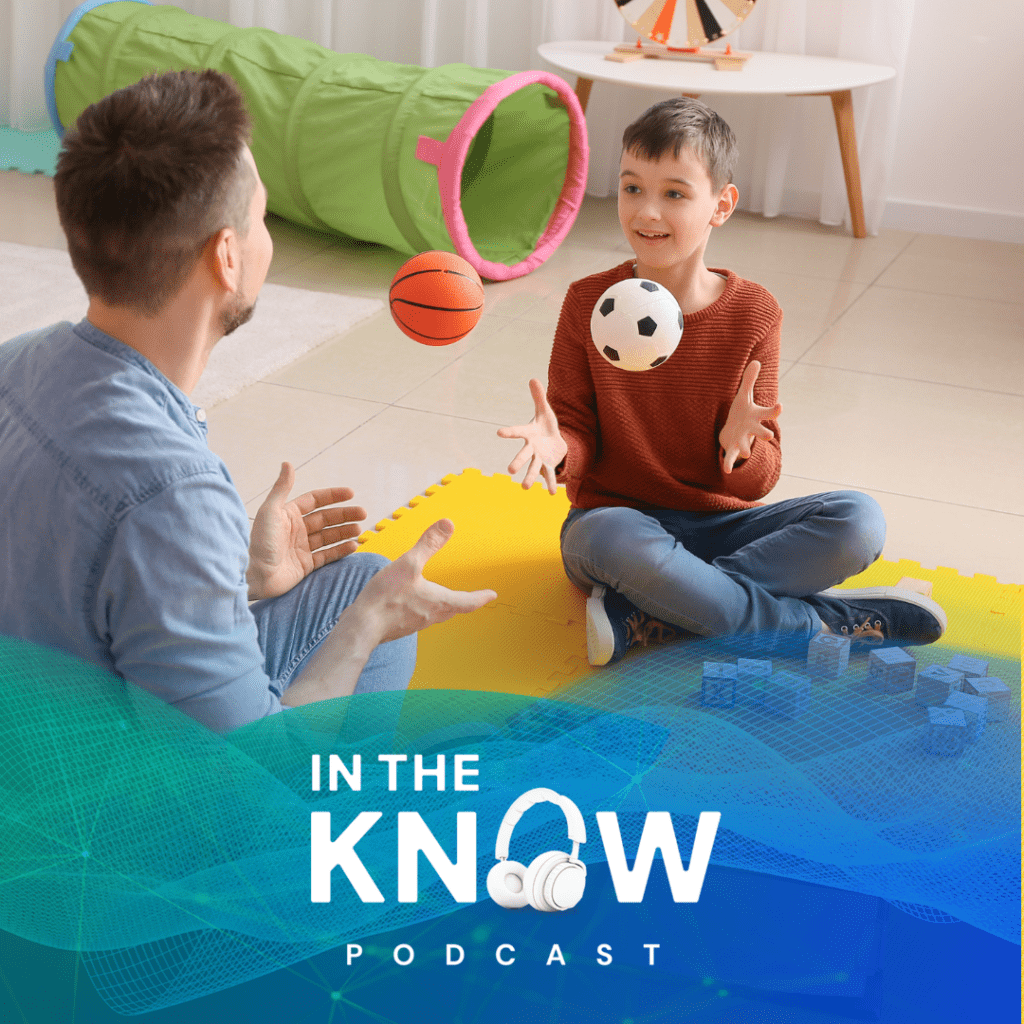Matthew Woodard, M.Ed., BCBA, LBA, and CEO & founder of BASICS NW is in a unique position to talk about today’s approach to Applied Behavioral Analysis (ABA). He has been practicing ABA for over 15 years, and in the last year became a parent of a child with autism.
In the latest episode of In the Know, Woodard has a candid conversation with child and adolescent psychiatrist Dr. Jennifer Shannon M.D. about how being a parent has changed his thinking about ABA, and what parents should expect from ABA.
 ABA is an intervention designed to help children with developmental or behavioral challenges develop skills they need for regulating their emotions and interacting with others, while lessening their problematic behavior, such as self-harm.
ABA is an intervention designed to help children with developmental or behavioral challenges develop skills they need for regulating their emotions and interacting with others, while lessening their problematic behavior, such as self-harm.
In light of recent scrutiny of the methods and outcomes of ABA in the child behavioral and developmental health community, Dr Shannon asks Woodard, “From the parent perspective, what does good ABA look like?”
“So now I have another angle I can position myself in, as a parent and provider coming in, right?” Woodard says. “And from this perspective, I think good ABA means that the practitioner asks a LOT of questions and is really trying to get to know your child and your family. The one thing we know is that every situation is unique. Every person, every family, whatever their sets of contingencies, whatever their values are, whatever their goals are.”
He goes on to talk about how his view has changed, now that he’s a parent:
“Sometimes when we’re early in an ABA career, it’s like, great, we have something so black and white that we can just do, and it’s going to be effective. And that might be true. But as a parent, if an ABA provider was just coming in saying, hey, here’s what we need to do, we’re gonna do this, this and this, I would have some concerns about that. I would want them to be asking a lot of questions and I would have a lot of questions for them too, and to have that communication back and forth. Because I know now that it’s not black and white like maybe those first few years. I thought it was going to be nice and clean and tidy and then I realized, no it isn’t.”
In this episode, Woodard also talks with Dr. Shannon about what parents can and should expect from their first couple of visits with an ABA provider. Woodard describes his experiences working with different types of families, some of whom have very specific goals and high hopes for ABA, and some who have never heard of ABA before, but were recommended by their doctor. In all of those cases, Woodard emphasizes the importance of honest upfront conversation, and continually keeping the lines of communication open between the parents and the practitioner, so the approach is individualized to the needs of that child.
In the end, Woodard explains that for ABA to be effective, it has to be able to match up with the goals of the family, and to be able to move at a pace and intensity that is right for them. As he says, “You know, when I was younger, I think I was in a hurry to try to help people to feel better and things like that. And again, now it’s no, there’s a journey here. And how do we help?”
LIsten to the entire episode to hear more of this conversation about what parents should know about ABA, what questions they should be asking, and what they should expect from ABA therapy.
Our new podcast series, In the Know, regularly features conversations with top experts in behavioral and developmental health to provide information and insights for clinicians and for families of children with developmental delays.
“In the Know, Presented by Cognoa” can be found on most major podcast platforms, including Apple Podcasts, Spotify, Podbean, and others. Be sure to subscribe so you can catch the future episodes when they are available!



